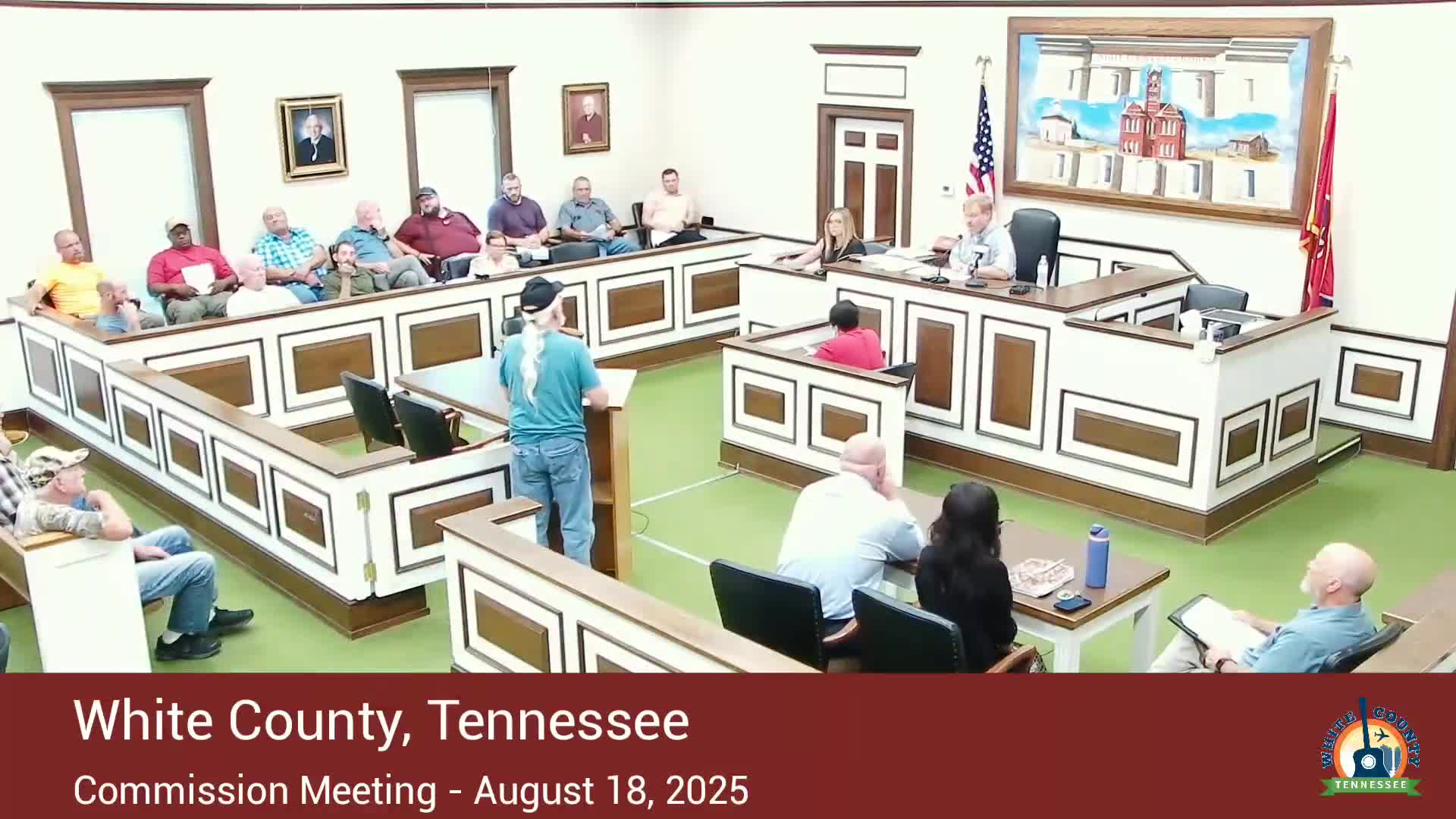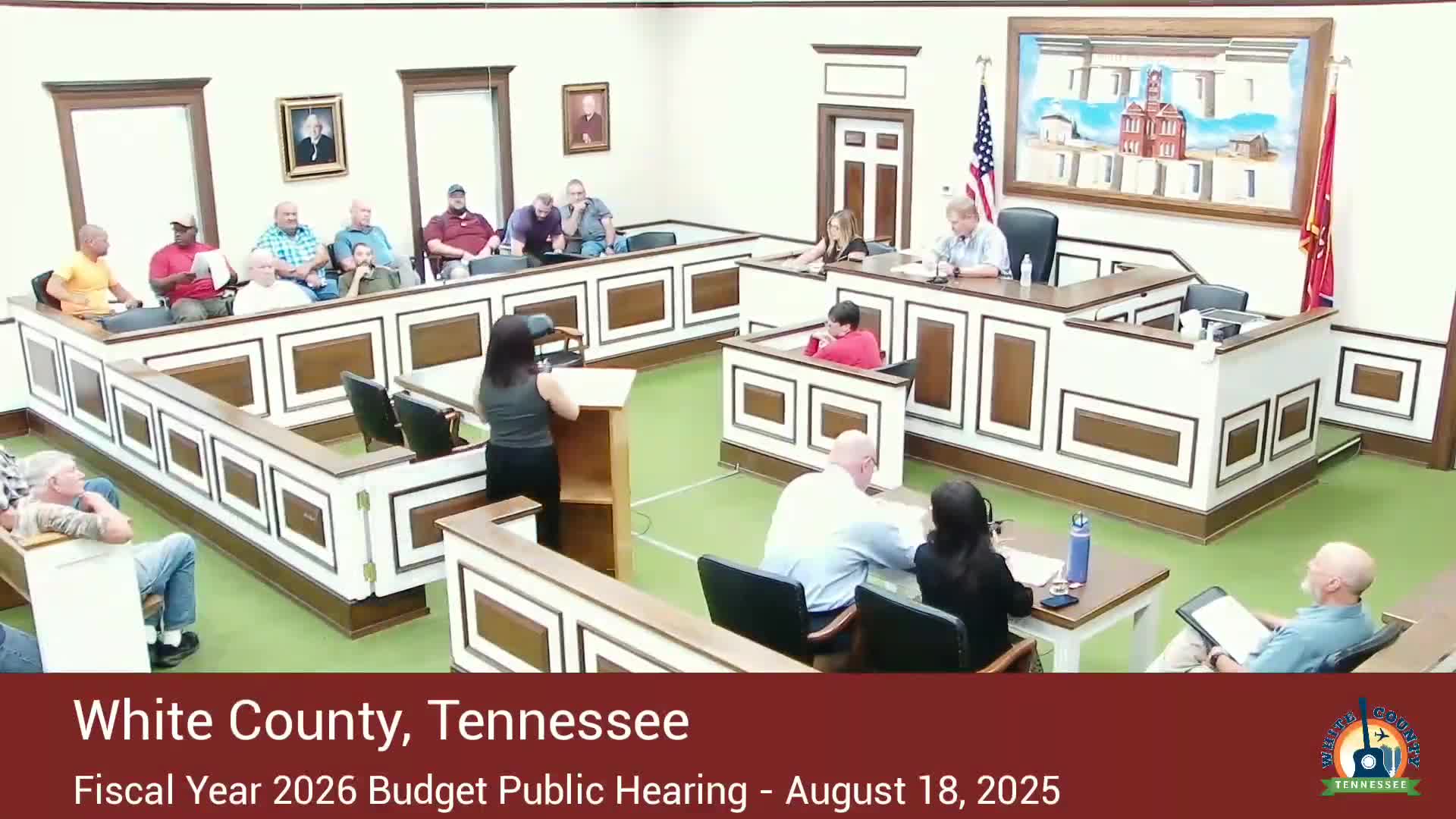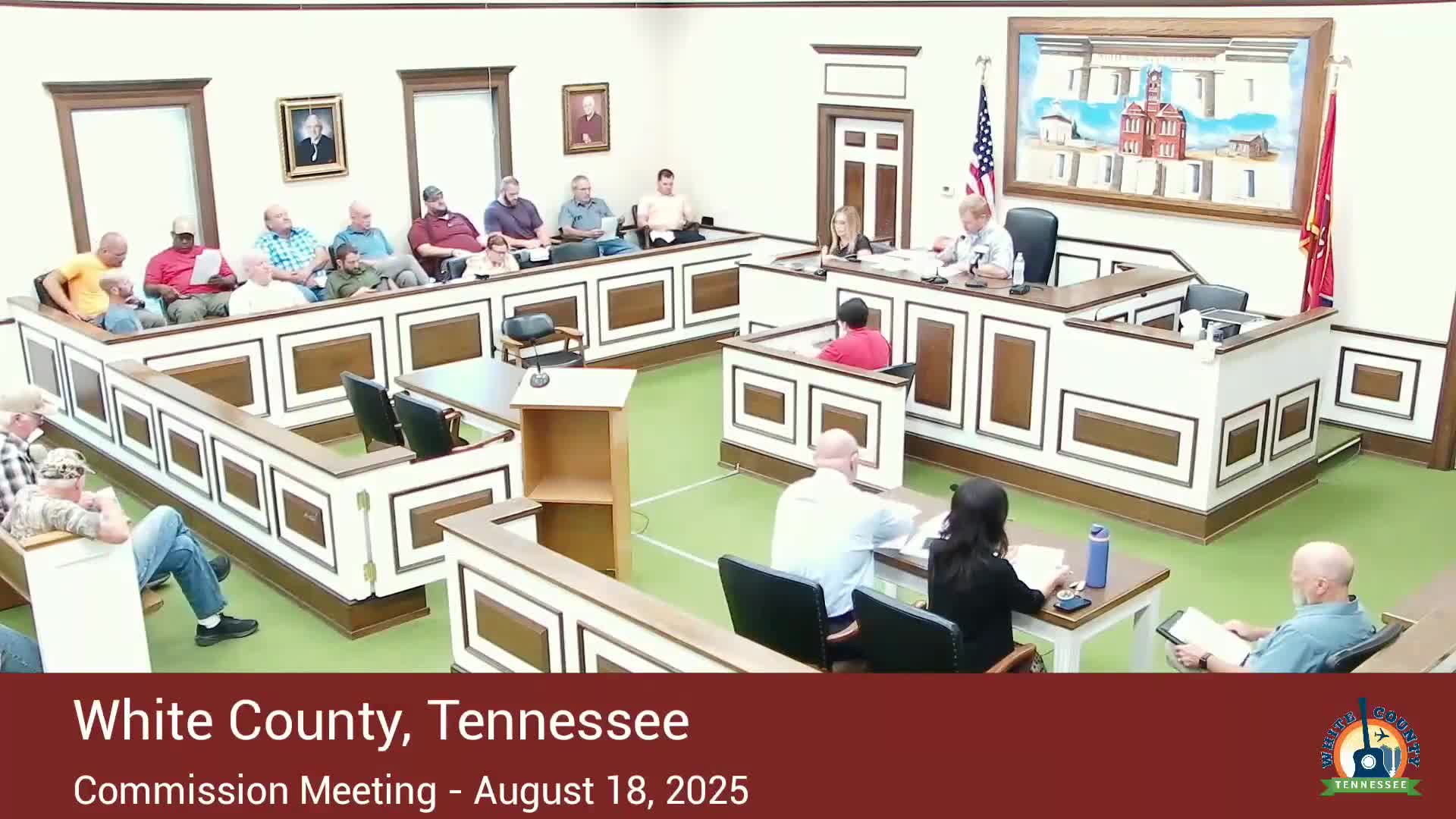Article not found
This article is no longer available. But don't worry—we've gathered other articles that discuss the same topic.

Residents and sheriff press White County commission to address dangerous stretches on Colebank Road and Highway 70

Resident warns White County commissioners of fiscal, civil-rights risks from local partnership with ICE

